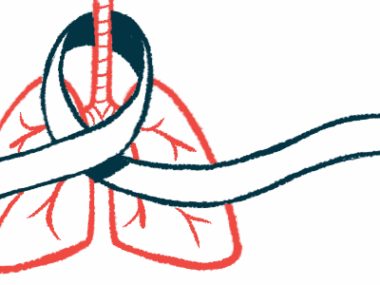Black women with sarcoidosis face higher kidney stone risk
Risk increased with co-occurring metabolic conditions, such as hypertension
Written by |

Black women with sarcoidosis have a risk of developing kidney stones that’s nearly twice as high as for people without the disease, a U.S. study suggests.
The risk increased as the number of co-occurring metabolic conditions grew, including high blood pressure and high levels of fatty molecules in the blood, called hyperlipidemia.
Given that most kidney stones are made of calcium and another molecule called oxalate, the findings “highlight the importance of monitoring for signs of calcium dysregulation in the management of sarcoidosis, especially among those with co-occurring metabolic conditions,” the researchers wrote. The study, “Sarcoidosis and Risk of Nephrolithiasis in U.S. Black Women: Data From the Black Women’s Health Study,” was published in CHEST Pulmonary.
Sarcoidosis is an inflammatory disorder where clusters of immune cells, known as granulomas, form in the body. While the lungs and lymph nodes are most affected, granulomas can appear in nearly any organ, including the kidneys. There, granuloma immune cells can produce molecules that increase the levels of the vitamin D hormone, which increases calcium absorption in the kidneys and the risk of kidney stones, called nephrolithiasis.
“Although physiologically connected, the risk of nephrolithiasis in patients with sarcoidosis is uncertain,” the researchers wrote.
Greater risk of kidney stones
Sarcoidosis is three to four times more frequent in Black Americans, with Black women showing the highest rates, and being more affected by metabolic risk factors of kidney stones, including hypertension and type 2 diabetes. Here, researchers in the U.S. retrospectively analyzed data from the Black Women’s Health Study, a national study launched in 1995 involving 59,000 Black women, to better understand the link between sarcoidosis and kidney stones. The participants ranged in age from 21 to 69 and represented all regions of the U.S. Sarcoidosis diagnoses were collected through questionnaires sent every two years from 1995 to 2005. Kidney stone history was assessed in the 2005 questionnaire.
Of the nearly 43,200 women who completed the 2005 follow-up, 832 (1.9%) reported having sarcoidosis. Compared with women without sarcoidosis, those with it tended to be older and to have higher rates of obesity, hypertension, hyperlipidemia, and type 2 diabetes. They were also more likely to report using calcium or vitamin D supplements and medications to manage hypertension, such as diuretics.
The researchers found that 3.9% of women with sarcoidosis reported a history of kidney stones, compared with 1.9% of those without the condition. This rate was even higher among those diagnosed with sarcoidosis at the start of the study (4.8%). After adjusting for potential influencing factors, including age, education, and supplement use, they found that women with sarcoidosis had a nearly twofold higher risk of kidney stones than those without it.
Those diagnosed at the study’s start had a risk more than two times higher. “These cases may represent those with chronic sarcoidosis, who have experienced persistent calcium dysregulation over longer periods of time,” the researchers wrote.
Risk rises with metabolic conditions
The risk of kidney stones increased as the number of co-occurring metabolic conditions grew. Among those with three or more metabolic conditions, such as obesity, hypertension, or hyperlipidemia, women with sarcoidosis were nearly twice as likely to have kidney stones than those without it. The link was strongest, by about two times, in women with sarcoidosis and hypertension or hyperlipidemia. Women with sarcoidosis and who weren’t obese had a nearly 2.5 times higher risk of kidney stones than non-obese women without sarcoidosis.
The increased risk in women without obesity may reflect the impact of other strong risk factors, such as hypertension or hyperlipidemia, on developing kidney stones in this group, said the researchers, who also noted that hypertension may increase kidney stone risk both through the condition itself and through medications used to manage it. Diuretics like hydrochlorothiazide and other thiazides, which are prescribed for hypertension and for preventing kidney stones, can raise calcium when used with vitamin D supplements.
“In summary, this study provides evidence that existing sarcoidosis may increase the odds of developing kidney stones in Black women, presenting some of the first population-based risk estimates of the association,” the researchers wrote. “The findings highlight the importance of monitoring for signs of vitamin D and calcium dysregulation in the management of sarcoidosis, especially among those with co-occurring metabolic conditions.”






